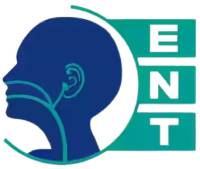OBSTRUCTIVE SLEEP APNOEA
Obstructive Sleep Apnoea (OSA) occurs when your breathing stops or becomes very shallow during sleep when your throat muscles relax and restrict your airway. This might happen multiple times per night, lowering oxygen levels in your blood. OSA disrupts your sleep and can induce daytime tiredness since you constantly wake up to breathe. If you or someone you know has OSA or snores excessively, contact Dr. Nilopher Qureshi ENT Specialist in Bhopal she will assist you in determining the best treatment for your needs.
Snoring is commonly associated with Obstructive Sleep Apnoea (OSA), however not everyone who snores has OSA. If you’re not sure about your snoring or believe it’s related to OSA, Dr. Nilopher Qureshi, an ENT Specialist in Bhopal, will help you find the proper solution. Snoring occurs when airflow is partially restricted during sleep, resulting in vibrations in the throat and mouth tissues that produce the snoring sound.

While snoring does not always signal a major health problem, it can be a symptom of underlying conditions like as OSA. Dr. Nilopher Qureshi, an ENT Specialist in Bhopal, should investigate loud and chronic snoring, especially if it is accompanied by additional symptoms such as gasping for air while sleeping, daytime weariness, or problems concentrating. Proper OSA diagnosis and treatment are critical for improving sleep quality, overall health, and quality of life.
Symptoms of Obstructive Sleep Apnoea (OSA)
- Excessive daytime sleepiness
- Loud snoring
- Observed episodes of stopped breathing during sleep
- Abrupt awakenings accompanied by gasping or choking
- Awakening with a dry mouth or sore throat
- Morning headache
- Difficulty concentrating during the day
- Mood changes, such as depression or irritability
- High blood pressure
Symptoms of snoring
Loud and persistent snoring
Disrupted sleep for the snorer or their bed partner
Loud and continuous snoring can interfere with sleep for both the snorer and their spouse. While snoring is rarely an indication of a significant health problem, it may suggest underlying issues such as Obstructive Sleep Apnoea (OSA). If snoring is accompanied by other symptoms like as daytime tiredness, breathing pauses, or gasping during sleep, you should see Dr. Nilopher Qureshi, an ENT Specialist in Bhopal, for specific treatment options.
Causes of Obstructive Sleep Apnoea (OSA) include:
- Relaxation of throat muscles during sleep
- Structural abnormalities in the upper airway
- Excess weight or obesity, leading to fat deposits around the neck
- Enlarged tonsils or adenoids
- Nasal congestion or obstruction
- Aging, which can lead to decreased muscle tone in the throat
- Family history of OSA or anatomical predisposition
- Certain medications or substances that relax the throat muscles
- Smoking, which can increase inflammation and fluid retention in the airway
Alcohol consumption, which can relax throat muscles and worsen airway obstruction during sleep.
Causes of snoring include:
- Relaxation of throat muscles during sleep
- Obstructed nasal airways due to congestion or anatomical issues
- Mouth anatomy, such as a large uvula or elongated soft palate
Excess weight or obesity, leading to fat deposits around the neck
Sleeping position, especially sleeping on the back
- Alcohol consumption or sedative use, which can relax throat muscles
- Smoking, which can increase inflammation and fluid retention in the airway
- Allergies or sinus infections causing nasal congestion
Age-related changes in muscle tone and tissue laxity in the throat
Family history of snoring or anatomical predisposition.
Treatment for Obstructive Sleep Apnoea (OSA)
CPAP therapy
Continuous Positive Airway Pressure machine.
Oral appliances
Custom-made devices to reposition the jaw and tongue.
Lifestyle changes
Weight loss, avoiding alcohol before bed, sleeping position adjustments.
Surgery
Uvulopalatopharyngoplasty (UPPP), tonsillectomy, or maxillomandibular advancement surgery.
Positional therapy
Encouraging side sleeping.
Nasal decongestants
Medications or sprays to reduce nasal congestion.
Behavioral therapy
Cognitive-behavioral techniques for sleep hygiene improvement.
Dr. Nilopher Qureshi, an ENT Specialist in Bhopal who specializes in sleep problems, may provide specialized treatment solutions targeted to your specific needs.
Treatment for snoring
Lifestyle changes
Weight loss, avoiding alcohol before bed, changing sleep position.
Oral appliances
Custom-made devices to reposition the jaw and tongue.
Nasal decongestants
Medications or sprays to reduce nasal congestion.
Surgery
Procedures to address anatomical issues contributing to snoring.
CPAP therapy
Continuous Positive Airway Pressure machine, sometimes used for severe cases.
Dr. Nilopher Qureshi, an ENT Specialist in Bhopal who specializes in snoring difficulties, can provide you with individualized treatment choices.
FAQ’S – SNORING
Snoring is mostly harmless, but it can occasionally suggest underlying health problems such as sleep apnoea.
Snoring can be reduced by making lifestyle changes such as decreasing weight, avoiding alcohol before bed, and altering sleeping positions.
Snoring may usually be decreased or eliminated through lifestyle modifications and treatment alternatives.
FAQ’S – Obstructive Sleep Apnoea (OSA)
OSA is usually diagnosed with a sleep study called polysomnography or a home sleep apnea test.
CPAP (Continuous Positive Airway Pressure) therapy includes utilizing a machine to supply a constant stream of air through a mask while sleeping in order to maintain the airway open.
OSA can be adequately managed, however it may not be entirely cured in all patients.
